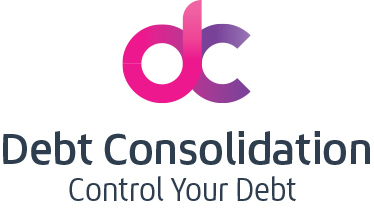Finding yourself in debt can be extremely overwhelming. It’s not a position anybody wants to be in, and it often creeps up on you without you realising. Whether you have borrowed beyond your means and are struggling to pay back the debt, plus interest. Or perhaps you have taken out multiple debts and can no longer make the repayments? Whatever your situation, you can rescue your finances with a debt agreement.
What is a Debt Agreement?
Put simply, a debt agreement is a legally binding agreement that is arranged between you and your creditors to repay your debts. It can be a very flexible way for you to manage your debts and each agreement is tailored to your specific situations, which means there is no blanket one-size-fits-all approach to them.
How Do Debt Agreements Work?
The idea of a debt agreement is to come to an arrangement where you can afford to pay off your loan over time. This has to be agreed upon with your creditors to ensure both parties are happy with the arrangement in place.
In order to be eligible for a debt agreement you must:
- Be insolvent: this means you can’t afford to pay your debts when they are due.
- Not have been in a debt agreement or been bankrupt in the past.
It is important to note that entering into a debt agreement is a serious step and does come with its own set of consequences for you to consider. It can be considered an ‘act of bankruptcy’, which means your creditors can apply to the court to make you bankrupt if you don’t meet terms.
Understanding exactly how they work is crucial to determining whether it is the right step for you.

Steps Involved in a Debt Agreement
- Determine whether you are in fact insolvent (unable to make your repayments). If you are in this position, then it is time to approach your creditors and let them know.
- A debt agreement administrator will then help manage the agreement between you and your creditors. Their aim is to find a fair outcome for both parties involved. If the proposal is not accepted by your creditors, then there is no debt agreement. If your debt is over $5,000 then your creditors can apply to make you bankrupt to get back what is owed to them.
- In the instance that your proposal is accepted, you will not be released from your debts. It is about finding a way for you to pay them back within your means. If you have an unsecured loan, then your debt is released once you have paid back the agreed amount. If you have a secured loan, creditors have a right to seize and sell your assets, such as your home, which was offered as security.
- Your name will then appear on the National Personal Insolvency Index (NPII) for a certain amount of time. This time will vary depending on the agreement made and your circumstances. This will affect your future chances of being able to take out a loan.
Is a Debt Agreement Right For Me?
If you are in a position where you are spiralling into further debt and are unable to pay off your loans, then it is definitely worth considering a debt agreement. The benefits will tend to outweigh the consequences if you are unable to find your own way out of debt.
There are other options you can explore first:
- Ask your creditors for more time to pay off your debt.
- Offer a smaller payment to settled the debt.
- See if you can negotiate a flexible payment arrangement that you can stick to.
- Ask for help from family or friends with paying back your debt. Of course, this can lead to more problems down the track, so it is worth considering the relationship you have with them and whether this is something you want to risk by involving money.
By entering a debt agreement, you are taking part in a legal option under the Bankruptcy Act 1966, which can have long-term consequences. These include:
- It is listed on your credit report for 5+ years.
- Your name is on the NPII (as mentioned above).
- You may not be able to work in certain professions as a result.
Where Do I Start?
If you are looking to enter into a debt agreement to help with your loans, then contact the professionals at Debt Consolidation. We will be able to talk you through the process involved, so you know exactly what to expect before going down that path. Just know that there are options available to you. While a debt agreement can seem overwhelming, it can help rescue your finances and get you back on track.


